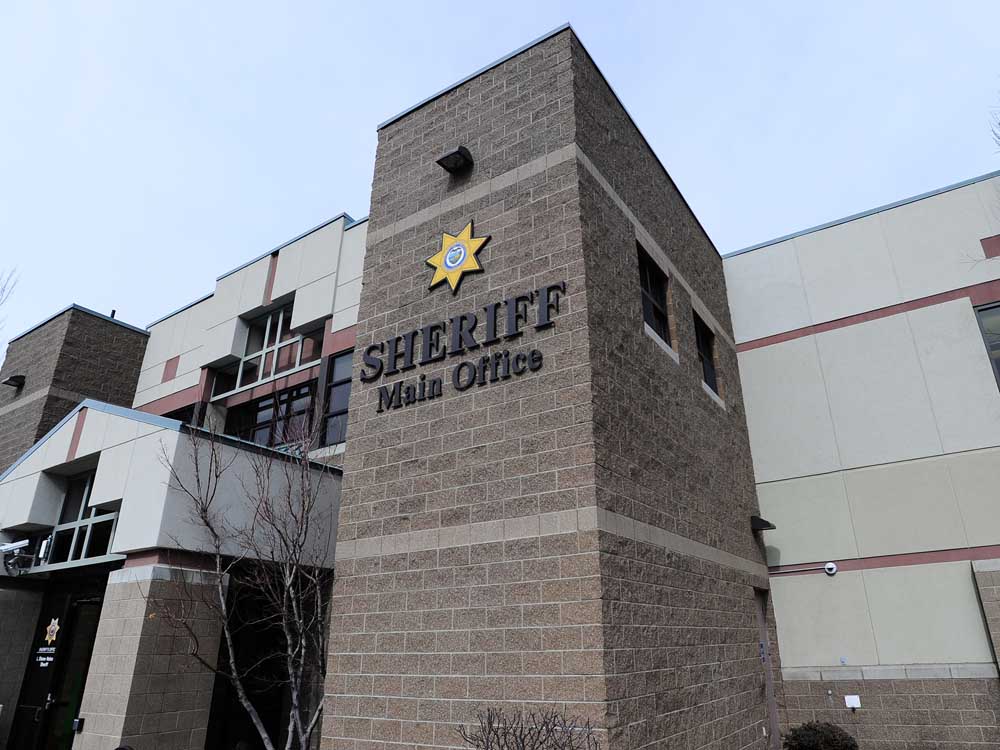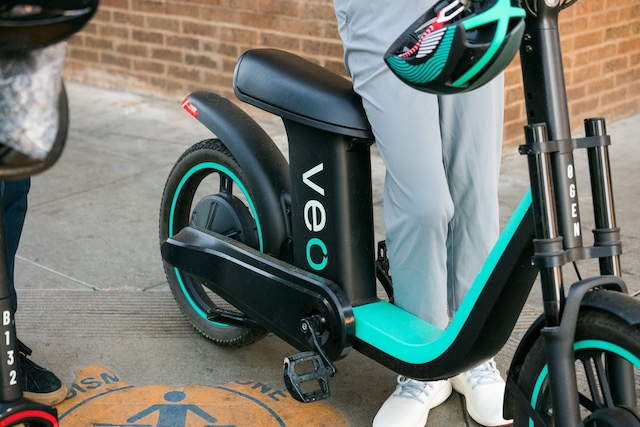Blind baseball announcer reaching out to sports fans
Published 12:02 am Saturday, June 10, 2017

- Bryce Weiler, a blind sports analyst, brings his phone closer to his ear while announcing a few innings for Georgia Tech, while they play UIC, at the Curtis Granderson Stadium, Friday April 28, 2017. Weiler said he researches the team players and follows the play by play to do his analysis. (Abel Uribe/Chicago Tribune/TNS)
CHICAGO – Blind since birth, Bryce Weiler hears more at a ballpark than most people see. The sound of the bat tells him whether a ball is headed into the outfield or swerving out of play. The pop of a catcher’s mitt signals whether a pitcher is still going strong or running out of steam.
Picking up on such audio cues has helped Weiler, a 26-year-old Chicago resident, broadcast more than 100 baseball, basketball and soccer games over the last six years. He serves as an analyst, dishing out statistics and stories in the pauses left by the play-by-play commentator, trying to give the audience a sense of what it feels like to be in the crowd.
Trending
“He hit that ball a little too hard,” Weiler said at a recent University of Illinois at Chicago baseball game when a single failed to advance a runner from first to third. “He had so much speed on that ball that it zipped and bounced out to the center fielder. That could be a crucial moment here with the runner on second; if it’s a short ball to the outfield, there’s still a chance to get a runner at the plate.”
It was a spot-on remark, the result of an almost-superhuman focus on his partner’s words and the sounds of the game, but to Weiler, it was no big deal. He wasn’t trying to impress anyone. He was trying, once again, to take a step toward turning his passion for sports into full-time employment.
“That’s the thing,” he said after finishing three innings in the radio booth of the visiting Georgia Tech Yellow Jackets. “(People) think it’s really interesting, but it never translates into jobs.”
Breaking into the sports business isn’t easy for anyone, usually requiring years of dues-paying and frenetic networking. But experts say people with disabilities have an especially tough time.
“The unemployment rate for people with disabilities trends in the vicinity of 70 percent,” said Linda Mastandrea, a Chicago disability-rights lawyer and Paralympic athlete. “That’s a large number of people who aren’t working. You stack that onto what’s already a difficult industry, it makes it a challenging climb.”
Lucikly, Weiler has always been up for a challenge.
Trending
LIGHT AND SHADOW
Weiler was born with retinopathy of prematurity, a disorder that diminishes the sight of premature infants by causing abnormal blood vessels to grow throughout their retinas. He has never been able to see much more than light and shadow, and now even that is fading.
But growing up in Claremont, a postage stamp of a town in southeast Illinois, he listened to ballgames broadcast by the University of Illinois and Indiana University and was hooked.
He attended the Indiana School for the Blind and Visually Impaired and then went to college at Indiana’s University of Evansville. The school has a robust sports program and a radio station that relies on student participation, and not long after arriving on campus, Weiler went to see station manager Tom Benson about calling games.
“My first reaction was (a skeptical) ‘OK!’” Benson recalled. “I said, ‘You know you’ll have to do more than other people to do this job. He said, ‘That’s never been a problem.’”
Weiler started out providing commentary for the women’s basketball team, memorizing statistics and players’ back stories so he would have something to contribute to the narrative woven by the play-by-play announcer.
He soon added soccer, baseball and softball to his repertoire, though he left football alone – formation shifts and pre-snap movement made it too difficult to follow.
Benson, who often did play-by-play with Weiler, said Weiler was rough in the beginning but became a solid announcer by his senior year thanks to his preparation and dependability.
“When other students said they couldn’t do it, Bryce was willing to do a game,” Benson said. “That’s the way he has learned to navigate things. He has opened doors because of his perseverance.”
EMPLOYMENT STRUGGLES
Weiler went on to call more games at Western Illinois University, where he earned a master’s degree in sports management and started a full-out blitz on the industry, calling and emailing dozens of professional team and hundreds of colleges looking for a chance.
He wasn’t just seeking announcing jobs; he said he could also do outreach and make sure their sports facilities were suitable for people with disabilities. But while he made some good contacts, the networking didn’t pay off in a job.
Kirk Adams, head of the American Foundation for the Blind, said that’s a familiar story.
Employment struggles begin early for people with visual disabilities, he said. They are less than half as likely as the sighted to find work in their teens or early 20s. That makes it harder to develop the web of acquaintances who can connect them with more substantial jobs.
Adams said that lack of experience is often aggravated by persistent myths about the blind – that they’ll be a safety risk, require a lot of expensive equipment, sue if something goes wrong or become a burden to customers and fellow employees.
“If you look at research of companies that employ blind people, that’s all wrong,” he said. “Blind people work as mechanical and electrical engineers, doctors, auto mechanics and aerospace machinists. Pick a career and there’s likely a blind person doing it somewhere.”
There are even blind sports announcers. One is Enrique Oliu, an analyst for the Tampa Bay Rays’ Spanish-language radio broadcasts.
He got started as a radio reporter, going to every sporting event he could to conduct interviews, improve his skills and build relationships. The grind paid off with an audition with Tampa Bay in 1998, and after impressing the bosses with his statistical recall, he was in.
Despite his success, he said, the gates haven’t opened for other blind people who want to work in sports.
“Not everybody’s receptive,” he said. “They still want to know if they need to get an extra person to drive you or all those things. It’s better, but it’s still very difficult.”
Oliu said perseverance is vital, and Weiler followed that maxim unfailingly. Finally, last year, his luck began to change.
BIG BREAK ARRIVES
One of his emails landed in the inbox of Baltimore Orioles executive John Angelos, who was struck by Weiler’s story and ambition. He wrote back, and from that correspondence came an offer to help the club reach out to fans with disabilities.
The Orioles flew Weiler to their ballpark in Baltimore and their spring training facility in Sarasota, Fla., and he made numerous suggestions, from adding “tactile strips” that tell the visually impaired they’re nearing a step, to targeting disabled fans with sales pitches, not just ticket giveaways.
“His sports acumen is very sharp,” Angelos said. “He was very revenue-focused from the beginning as well as being outreach-focused, which you don’t always get with people who work in sports. People tend to separate into different worlds.”
The Orioles’ gig gave Weiler a start. Then last month, just a few days after calling the game at UIC, Weiler’s big break finally arrived, courtesy of another shot-in-the-dark email.
Anthony Iacovone, owner of the Connecticut’s New Britain Bees minor league baseball team, was impressed by Weiler’s accomplishments. He’d been looking for a way to expand the club’s community ties, and Weiler struck him as the right person for the job.
So next month, Weiler plans to head to Connecticut for a full-time position that will involve creating programs at the ballpark for people with disabilities. It also will involve helping people with disabilities fill other jobs with the club.
“These are things he always wanted to accomplish and we’re going to do them,” Iacovone said.
Weiler still hopes to get in the broadcast booth from time to time, but said he’s happy with the turn his career has taken. He wants other people with disabilities to enjoy sports as much as he has, he said, and for anyone seeking to follow his path, he offered this advice:
“There isn’t always going to be someone out there to champion your cause or help you overcome the obstacles and challenges in your life,” he said. “You might have to do it yourself.”








